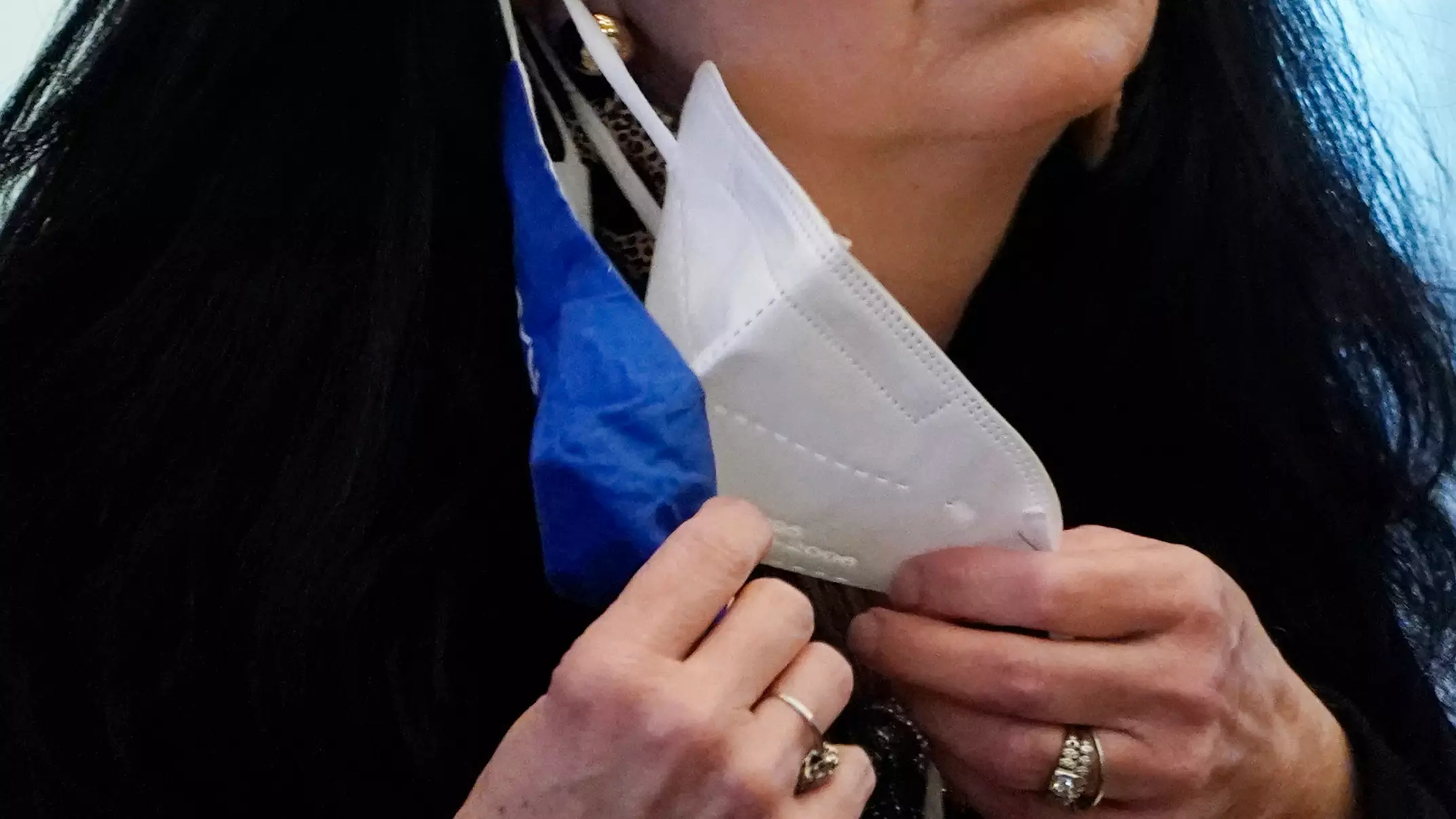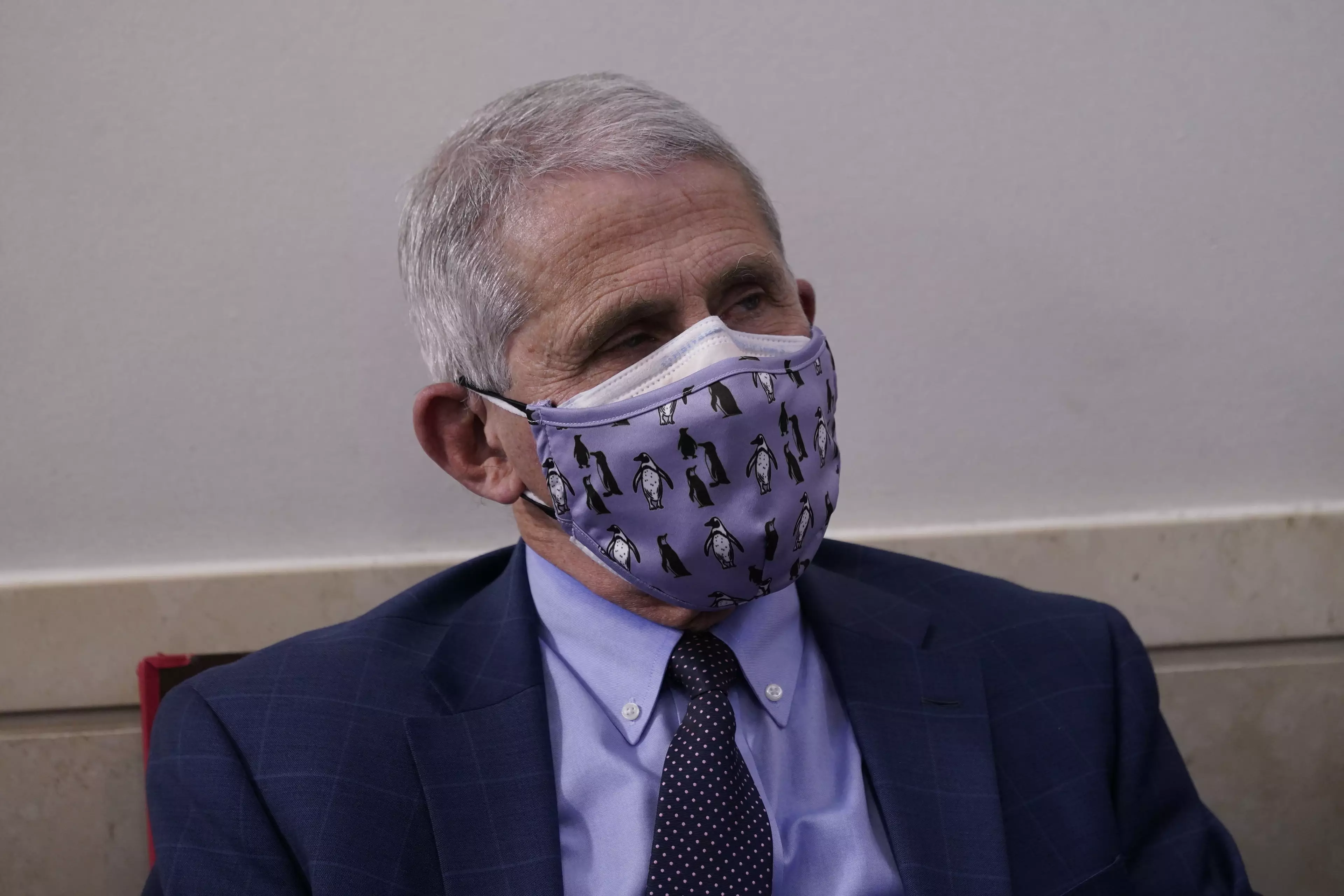
A new study has strengthened calls for people to wear two face masks to prevent the spread of the coronavirus.
The Centers for Disease Control (CDC) in the US has conducted an investigation into the effectiveness of the double mask approach when it comes to stopping the virus from being transmitted - and the results are impressive.
According to the CDC's findings, if you wear a cloth mask over a three-ply medical procedure mask, and knot the ear loops of the latter mask and then tuck the excess material close to the face, it has a 96.4 percent success rate.
Advert

Dr. John Brooks, the CDC's chief medical officer for Covid-19 response, who co-authored the new study, told Insider: "What we want to do is now help consumers make mask-wearing work better for them.
"There've been a number of different ways, simple ways, low-tech ways, that people can improve the performance of their mask," he said.
"More layers helps. Better fit is critical."
Advert
Wearing just a cloth mask helped block 44.3 percent of the particles from a simulated cough, while an unknotted surgical mask stopped 42 percent.
Using the knotted and second face mask and ensuring it's tightly around your face was found to reduce Covid-19 transmission by a whopping 96.4 percent.
This high percentage rate only applies if both the coughing person and the person on the other end are double masking and knotting the sides.

Advert
CDC Director Rochelle Walensky said: "In the study, wearing any type of mask performed significantly better than not wearing a mask.
"And well-fitting masks provided the greatest performance at both blocking emitted aerosols and exposure of aerosols to the receiver.
"In the breathing experiment, having both the source and the receiver wear masks modified to fit better reduced the receiver's exposure by more than 95 percent, compared to no mask at all."
The US recently introduced a mask mandate across the country that requires citizens to whack on a face mask when they are on planes, buses, trains and other public transportation traveling into, within or out of the US.
Advert
People will also have to wear them if they are in a transit hub like an airport, bus or train station.
Featured Image Credit: PATopics: News